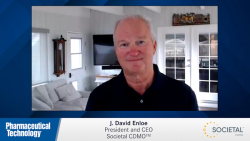
OR WAIT null SECS
- About Us
- Advertise
- Contact Us
- Editorial Info
- Editorial Advisory Board
- Do Not Sell My Personal Information
- Privacy Policy
- Terms and Conditions
© 2026 MJH Life Sciences™ , Pharmaceutical Technology - Pharma News and Development Insights. All rights reserved.
Stem-Cell Company Takes Steps Towards Compliance
Laboratories that offer stem-cell treatments have come under close scrutiny by FDA. A recent court ruling clarified that stem-cell products that have been more than minimally manipulated can be regulated as drugs, and FDA can require both an IND and manufacture under GMP for such products. Texas-based Celltex Therapeutics, a company that isolates and expands adipose-derived mesenchymal stem cells, ran into trouble with FDA earlier this year over its stem-cell products.
Laboratories that offer stem-cell treatments have come under close scrutiny by FDA. A recent court ruling clarified that stem-cell products that have been more than minimally manipulated can be regulated as drugs, and FDA can require both an IND and manufacture under GMP for such products. Texas-based Celltex Therapeutics, a company that isolates and expands adipose-derived mesenchymal stem cells, ran into trouble with FDA earlier this year over its stem-cell products. An inspection of its facilities in Sugarland, Texas in April, 2012 turned up more than 70 violations of GMP including inadequate sterility controls, poor record keeping, and the use of research-grade reagents (you can find the inspection report here).
According to a press release from Celltex, the company is working toward resolving those issues, but disagrees with FDA over the underlying premise that its products are drugs and can be regulated as such. The company also indicated it is preparing INDs for clinical trials focused on the effectiveness of adult autologous stem cells for specific conditions, such as multiple sclerosis, osteoarthritis, and macular degeneration.
The initiation of clinical trials is good news in a field that is awash in unsubstantiated medical claims. And, as it prepares its IND submissions, Celltex will receive an overdue education in the manufacture of clinical trial-grade material.


